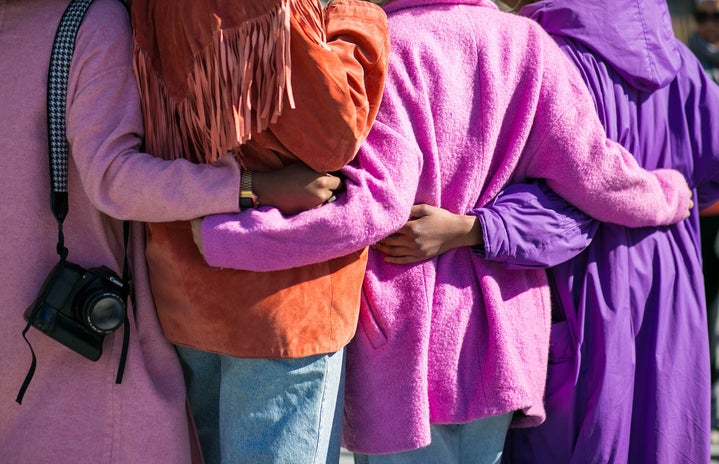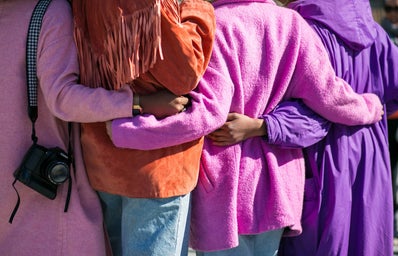I’ve heard a lot of people around me say that a woman is someone who is selfless. Many others think she ought to be powerful. Some associate womanhood to an individual’s ability to give birth. But, something that I have heard very few people say is, “Anyone who says she is a woman is a woman.”
There is something fundamentally wrong with the world connecting traits like selflessness to a woman or equating womanhood to childbirth. Even if we overlook procreation, the very fact that people continue to associate vaginas, ovaries and uteruses to women is tragic and disturbing, to say the least. Not only do these generalisations leave out those women who don’t have the aforementioned organs, but even forcefully include people with other gender identities within the umbrella term of ‘women’ solely because of their genitals.
A lot of transphobic people I have come across on social media and in person have often argued that an individual advocating for the rights of trans women the way they do for cis women and other AFABs are acting as “men’s rights activists”. It must be understood that such statements are the very definition of transprejudice. If a person who was assigned male at birth identifies as a woman, then her rights should be the same as those of someone who identifies as a woman after being assigned female at birth. A trans woman’s gender identity is as valid as a cis woman’s and feminism was never meant to be a movement just for people with vaginas.
The question is: what are TERFs scared of? Why do they think that including trans women in the category of women will threaten the rights of AFABs? Why do inclusive terms like ‘non-cis men’, ‘people with vaginas’, ‘individuals capable of pregnancy’ and ‘menstruators’ seem derogatory to them? Are TERFs ashamed to acknowledge the fact that AFABs have vaginas, that they menstruate and that they have the capacity for pregnancy? As someone with a vagina, a clitoris and ovaries, I will feel more than happy if someone refers to me as a ‘person with a vagina’ or a ‘menstruator’ and as a non-cis man, I would be proud to be included in the same category as other non-cis men.
It is understandable that there are numerous cisgender women who value their womanhood. However, while the term ‘woman’ can matter a lot to them, it can also not be used as a generalised term to refer to those who menstruate. Thus, if they are, indeed, concerned about not being allowed to call themselves ‘women’, they can either refer to themselves as ‘cis women’ or as ‘AFABs’. Being a little more inclusive and cognisant of other gender identities doesn’t wipe out the existence of women altogether. All it does is ensure that no one who identifies as a woman is left out and no one who doesn’t identify as one is forcefully included while talking about the gender identity of a woman.
We all need to internalise one more thing: trans women are no threat to cis women and AFABs. TERFs might claim that “allowing” trans women into the restrooms and changing rooms meant for all women would increase the chances of sexual assault against the AFABs present there. However, there are no findings that support this reasoning. If a trans woman can harm another woman in a restroom or a changing room, so can a cis woman. Thus, are we supposed to ban public toilets altogether in order to protect cis women and AFABs with other gender identities from harm?
An important debate regarding who all are impacted by the various women’s rights movements taking place across the world arises when we begin to acknowledge and respect different gender identities. The answer, according to me, is anyone who is directly affected by the issues being raised under such movements. For example, abortion rights don’t exclusively concern cisgender women; they also involve people who do not identify as women, but are still capable of pregnancy—such as certain trans men and non-binary people who might ovulate. The same can be said about the discussion revolving around vaginal and clitoral orgasms which doesn’t solely affect cisgender women, but also individuals with other gender identities who have vaginas and clitorises. On the other hand, when we talk about equal pay for equal work, we need to look beyond just men and women by focusing on more identities. Similar to these, there are many more issues that stretch beyond womanhood even if they were initially centred around the oppression faced by cisgender women.
As mentioned throughout, the only thing one needs in order to pass as a woman is to identify as one. However, that being said, one doesn’t have to identify as a woman for their concerns to be made a part of the feminist movement or for their issues to be considered as legitimate. Trans women are as much affected by women’s rights movements as cis women. Anyone who believes that the former should be denied the rights given to the latter can not refer to themself as a feminist because feminism is inherently meant to include trans women. As we celebrate women this month, let’s make it a point to become more trans-inclusive in terms of the language we use, the people we hire at workplaces and the individuals we appreciate for being a part of our lives.


